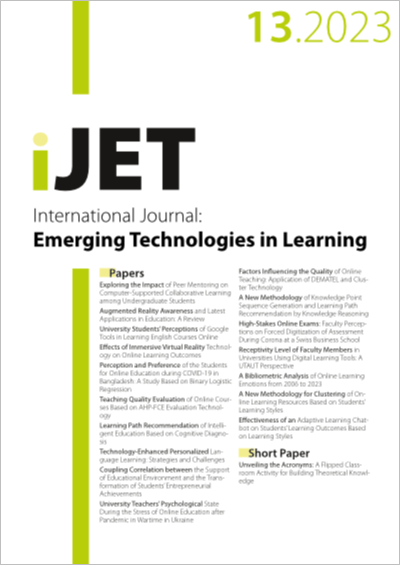University Teachers’ Psychological State During the Stress of Online Education after Pandemic in Wartime in Ukraine
DOI:
https://doi.org/10.3991/ijet.v18i13.39825Keywords:
questionnaire, stress, online, university teacherAbstract
Online education is a world need. Many universities continue providing online education. The first stress from pandemic and online teaching went on and university teachers managed to cope it. The next stress from wartime in Ukraine came and online teaching goes on, so university teachers manage to cope it again. The purpose of the research is to show university teachers’ psychological state during online education after pandemic in wartime in Ukraine. For achieving the stated purpose, we applied the methods of analysis and synthesis, questionnaire, calculating methods, in particular, MS Excel. The questionnaire consisted of questions help to describe the psychological teachers state, fear, stress, anxiety. The participants of the research became 49 university teachers from Ukraine. The results are as follows. The most common negative impacts on mental health are depression, isolation, family danger, possibility of being attacked, pressure from the war, lack of social life. The most constructive impacts on mental health are morale, social media, chatting, good war news. It is recommended to use different resources to overcome university teachers’ stress. They are faith, feelings, socialization, imagination, thinking, physiological activity. The conclusion is online education after pandemic in Ukraine is still stressful because of wartime. It is recommended to use different resources to overcome university teachers’ stress.
Downloads
Published
How to Cite
Issue
Section
License
Copyright (c) 2023 Ilona Kostikova

This work is licensed under a Creative Commons Attribution 4.0 International License.


